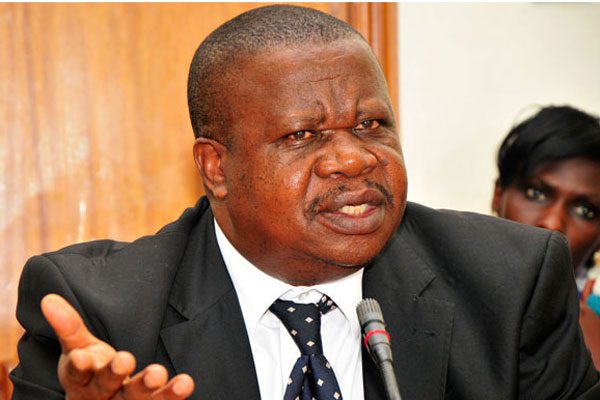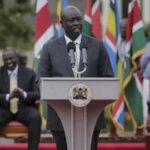Hon. Gen. Kahinda Otafiire has taken a firm stance against a proposal to elect Uganda’s President through political parties instead of popular vote. This proposal, floated by some Members of Parliament, has sparked intense debate, particularly among opposition members who fear its implications.
Otafiire, a veteran politician and retired military officer, argued that Uganda’s constitution requires the President to be elected by over 51% of the population to ensure a broad-based mandate, aligning with democratic principles. He emphasized that this threshold was deliberately set by the constitution’s framers.
Key Concerns:
- Undermining Electoral Integrity: Otafiire believes the proposal disregards the country’s constitutional framework and vowed to defend the current system .
- Legitimacy through Majority Vote: He insists leadership legitimacy should stem from a majority vote by citizens .
- Constitutional Adherence: Otafiire’s stance reflects his commitment to maintaining constitutional adherence and upholding democratic standards.
As a key figure in Uganda’s politics, Otafiire’s opposition to the proposal highlights the complexities of the country’s political landscape, where constitutional provisions are fiercely debated. His past experiences, including fighting in the Luweero war and serving as Minister of Justice and Constitutional Affairs, inform his strong defense of Uganda’s electoral integrity.
Implications:
- Electoral Reforms: The proposal’s rejection may hinder efforts to reform Uganda’s electoral process .
- Party Politics: The debate may intensify party politics, with opposition members pushing for changes to the electoral system .
- Democratic Standards: Otafiire’s stance underscores the importance of upholding democratic standards in Uganda’s political system.
Overall, Otafiire’s opposition to the proposal underscores the need for careful consideration of Uganda’s electoral system and constitutional provisions to ensure democratic principles are upheld.



